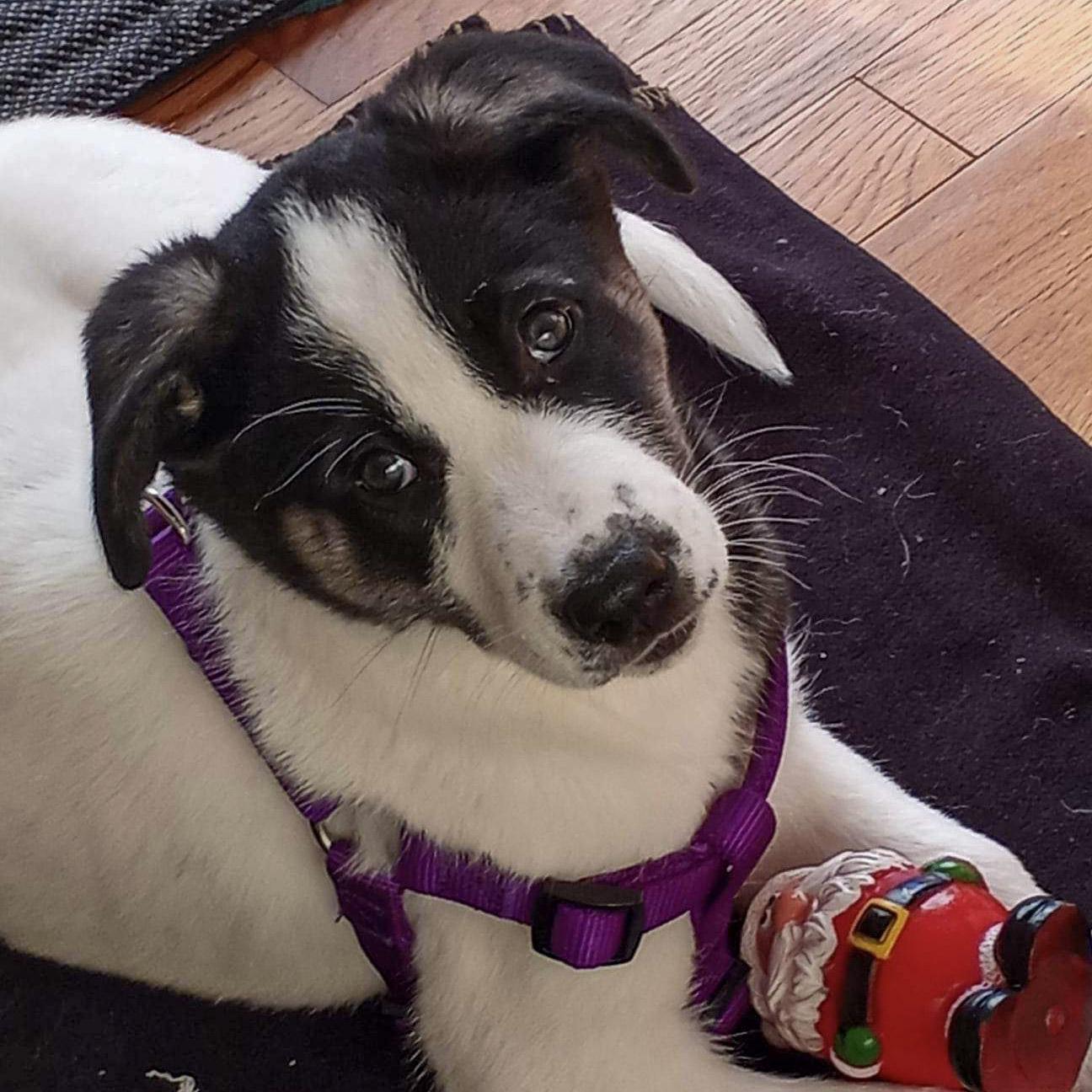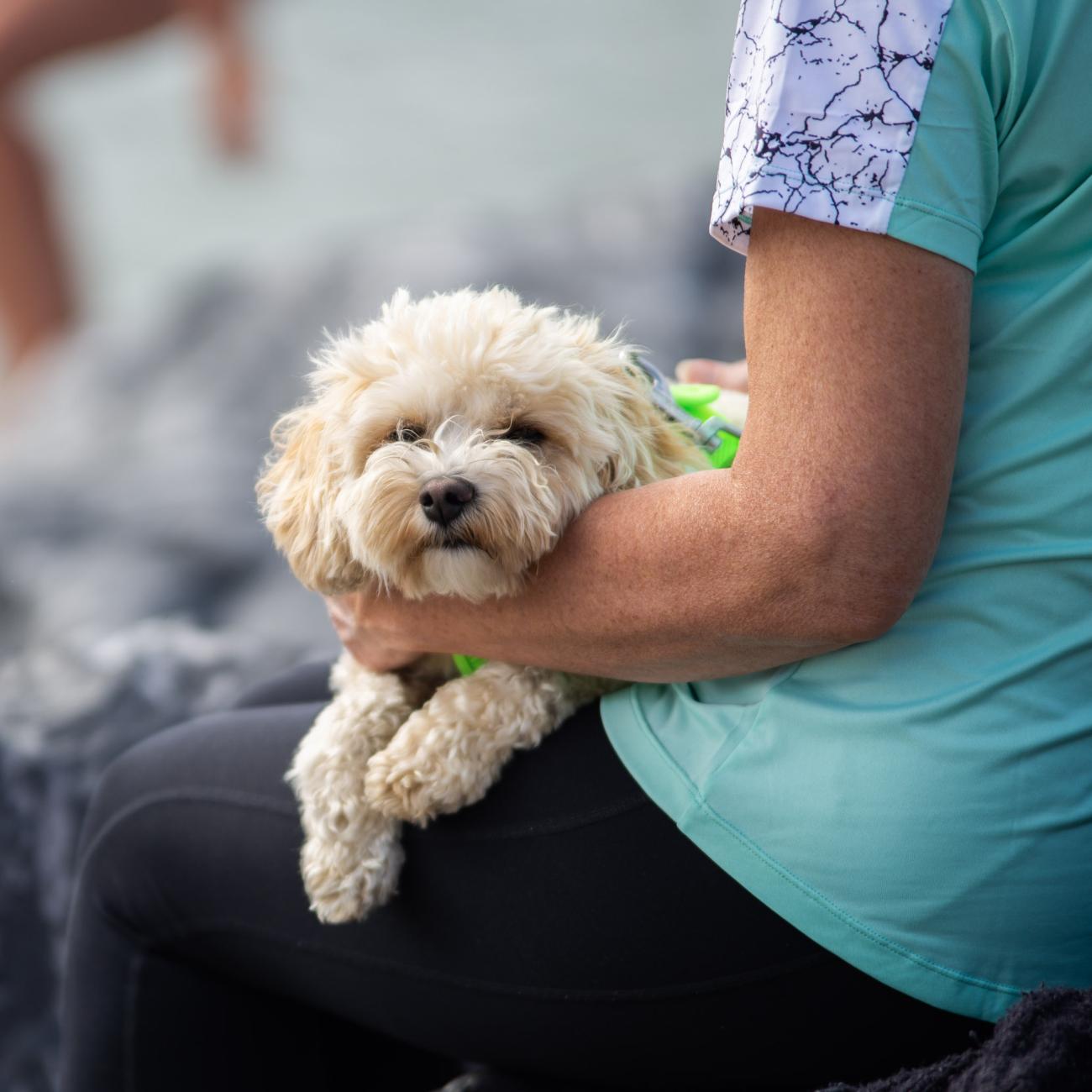Giving dogs a new leash of life: the work of local authority dog wardens
From city parks to rural boreens, dogs are a familiar sight across the country. Here's how local authorities help to ensure the welfare of our furry friends, and the safety of the communities where they live.
Ireland loves dogs. In 2023, over 195,000 dog licences were issued, and research shows that about one in four households has a dog. With so many dogs around, it’s important to look after their needs while also considering the needs of our communities.
Local authorities play a big part in this. They can appoint dog wardens, run dog pounds, issue on-the-spot fines, and even take legal action against owners when needed.
Much of the day-to-day work is the responsibility of dog wardens. To learn more about what they do, we spoke to Laura Mulligan, a dog warden with Mayo County Council. Laura explained what happens when a stray dog enters the pound, why microchipping matters, and shared some great tips for helping your dog stay calm during Halloween.

Advice from the dog warden
What do I do if I find a stray dog?
If you find a stray dog or see one in your neighbourhood you should report it to the dog warden service at your local authority. They are best equipped to collect and care for the dog.
You can also report a stray dog to the Gardaí, as they are also authorised under the Control of Dogs Act to take action. In practice, the Gardaí often work with the local authority dog warden to capture and care for the dog.
What happens when a dog is picked up by the dog warden?
Laura explains that when a dog has been picked up as a stray it is held in the dog pound for five days. This gives its owner a chance to reclaim it. Now that dogs are required to be microchipped, the dog pound can very often get contact details for the owner easily and reunite the dog with its owner straight away.
Laura mentions it's not uncommon for details on the microchip database to be inaccurate though. This can happen because the phone number listed is out of date or belongs to a previous owner. It's a good idea to have your vet confirm that your details on the microchip database are correct if you haven't checked this before.
What if my dog goes missing?
If your dog goes missing you should contact your local dog warden service right away. They may already have the dog or a report from a member of the public. Providing a microchip number along with a photo or description of your dog will help, so it's good to have these details to hand.
How does the owner claim their dog from the pound?
To reclaim a dog, the owner must show they have a valid dog licence. Before releasing the dog, the pound will also ensure the dog is microchipped, and has a proper collar with an ID tag. The owner must also pay a small reclaiming fee.
What happens to unclaimed dogs?
If a dog is not reclaimed after five days, the dog warden will arrange for it to go to a rescue organisation. Each council has its own partnerships in place. Dogs that are healthy, socialised and safe around people and animals are usually rehomed successfully. Dogs that have been involved in attacks or have serious behavioural issues are not rehomed.
What if I’m concerned about a dog’s welfare?
If you are concerned about the welfare of a dog in your neighbourhood you can contact your local authority to seek advice. Neglect or mistreatment of dogs is taken very seriously. Depending on the local authority area where you live, action will be taken by either the dog warden, the Gardaí, or an ISPCA inspector working on the local authority's behalf.
Why are licences, microchips and collars so important?
Licensing, microchipping, and ID tags are essential to help keep dogs safe. A valid licence links you to your pet. A working microchip with up-to-date contact details means the dog warden can call you as soon as your dog is found. A collar and tag help members of the public identify and help a lost dog before it even reaches the pound. These simple steps can help prevent the distress of a missing pet.
What can I do if my neighbour’s dog won’t stop barking?
Incessant barking from a neighbour's dog is a considered a noise pollution issue, and it falls under the Noise Pollution Act. If you’re affected - and your neighbour is not helping to resolve the situation - you can take action through the District Court.
What are local authorities doing about dog fouling in public spaces?
Dog fouling is more than a nuisance, it's a public health issue. Local authority litter wardens are empowered by the Litter Pollution Act to issue on-the-spot fines if they witness someone failing to clean up after their dog. In some areas, litter wardens and dog wardens carry out joint patrols to ensure cleaner pavements and promote responsible dog ownership.

Happy dogs in new homes
While the dog wardens often deals with difficult situations, there are also uplifting moments – especially when a dog finds a second chance through rehoming.
Laura recalls several dogs that came into the pound under tough circumstances, due to neglect or because their owners could no longer care for them properly. With support from rescue organisations, many of these dogs have gone on to live happy, healthy lives in new homes.
Getting an update or a photo from the rescue organisation that shows a once-anxious dog now settled into a welcoming new home is rewarding part of the dog warden's job. Dog warden services are always delighted to hear that dogs once in their care are now living their best lives.
Helping your dog cope through Halloween
Halloween can be a stressful time for dogs. Loud fireworks, flashing lights and unfamiliar people coming to the door can cause dogs a lot of anxiety. It's upsetting for the dog and it can even lead them to run away. Here's some useful tips to help your dog cope successfully.
- Walk your dog earlier in the evening, before fireworks begin.
- Ensure the boundaries of your property are secure in case your dog runs off.
- Bring your dog indoors and create a quiet, safe space.
- Play soft music to help mask outside noise.
- Let your dog come out of their safe space in their own time. No need to coax them out before they're ready.
Small steps like these can help keep your dog stay safe, soothed and secure.
Resources
- You can order a licence for your dog at your local post office or online on licenses.ie
- The Dog Ownership services page on LocalGov.ie has information on licensing, adopting a dog, and restricted breeds.
- For good advice on responsible dog ownership you can visit gov.ie/dogs